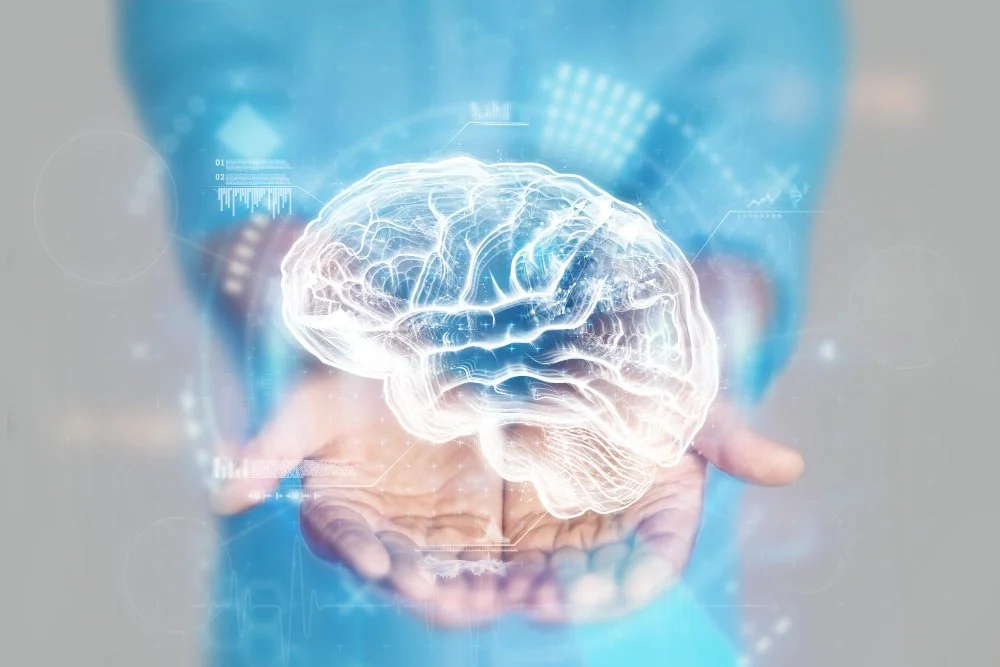When a Head Injury Affects Your Hormones
Understanding TBI, Concussions, and Why You Still Don’t Feel Like Yourself
You might have whacked your head in a fall, a car wreck, or while horsing around. Perhaps you felt “meh” for a couple of days, and then tried to move on.
But weeks or months later, you still don’t feel like yourself.
You may notice:
Your mood changes fast
Your energy is low
You cannot think clearly
You forget simple things
You are sleeping, but still feel tired
You feel anxious or down
You're less interested or motivated
A lot of people attribute it to stress, age or burnout. But in many cases, the underlying issue is something more profound:
A head injury can modify your hormones.
And when your hormones are not in working order, your brain can’t recover like it’s supposed to.
Why Hormones Matter in Concussion…
Hormones are little messengers that your body produces.
They help control:
Energy
Mood
Sleep
Memory
Focus
Healing
After a concussion or TBI, the part of your brain that manages hormones, called the pituitary gland, can be injured. This is called neuroendocrine dysfunction.
When this happens, there is a break in communication between your brain and body.
Even a “mild” concussion can lead to:
Low hormone levels
Slow healing
Long-lasting symptoms
This is why some people never fully recover from their injury: no one checked their hormones!
Dr. Mark Gordon’s Science-Based Approach
Dr. Mark Gordon is one of the top doctors in both TBI and hormones.
His research shows:
A head injury can disrupt hormone production
Low levels of hormones may lead to depression, anxiety, brain fog and fatigue
Balancing hormones can promote healing of the brain
His protocol is simple:
Test the hormones
Find what is low
Correct the missing hormones.
Protect the brain with anti-inflammatory nurturing
We, at our clinic, go through the same science-based systems for patients all over Ontario, BC, Alberta, Saskatchewan and Quebec.
Key Hormones Which Impact Brain Recovery
Here are the hormones that matter most after TBI:
1. Growth Hormone (GH)
Supports memory
Helps the brain grow and repair
Improves energy
2. Progesterone
Protects brain cells
Reduces inflammation
Helps calm the mind
3. Testosterone
Improves mood
Increases motivation
Supports clear thinking
4. Thyroid Hormones
Control metabolism
Help with focus and energy
When these hormones are restored to healthy levels, patients often say they feel:
Clear
Energized
Calmer
More like themselves again
This is not guesswork; it’s biology.
Our TBI Hormonal Recovery Program
We utilize a simple, step-by-step plan:
1.Full Symptom Review & Bloodwork
We listen to your story.
We invest in key hormone tests that Dr. Gordon uses in his protocols.
2. Personalized Hormone Optimization
We're replacing what your brain is missing – based on your symptoms and labs, not just “normal ranges”.
3. Follow-Up and Support
We check in, tweak treatment and steer you while your brain heals.
We have clients in most large cities in Ontario, BC, AB, SK and Quebec, including Ottawa, Toronto, Vancouver, Victoria, Edmonton, Calgary, Regina, Saskatoon, Montreal, etc.
You Don’t Have to Stay in the Fog
Many people are told:
“Just rest.”
“Nothing is wrong.”
“It’s all in your head.”
But you know your body. If you still don’t feel quite right after a concussion, there may be an explanation: your hormones could be out of balance.
The good news?
Your brain can heal.
Your hormones can be fixed.
And we can help.
We’re Here for You
If you are struggling with symptoms from a concussion or TBI that are not going away, we provide care across Ontario, BC, Alberta, Saskatchewan and Quebec, completely virtual and easily accessible.
Ask about the TBI Hormonal Recovery Program.
We can assist you in finding the missing part and feel like yourself again.

